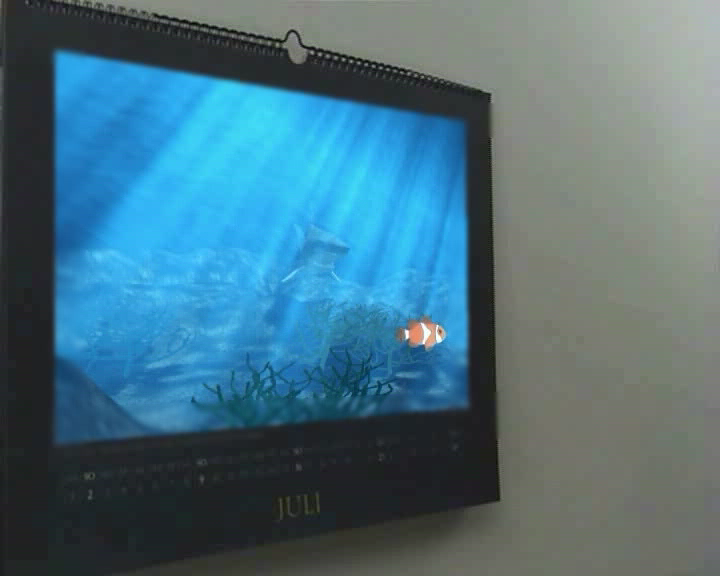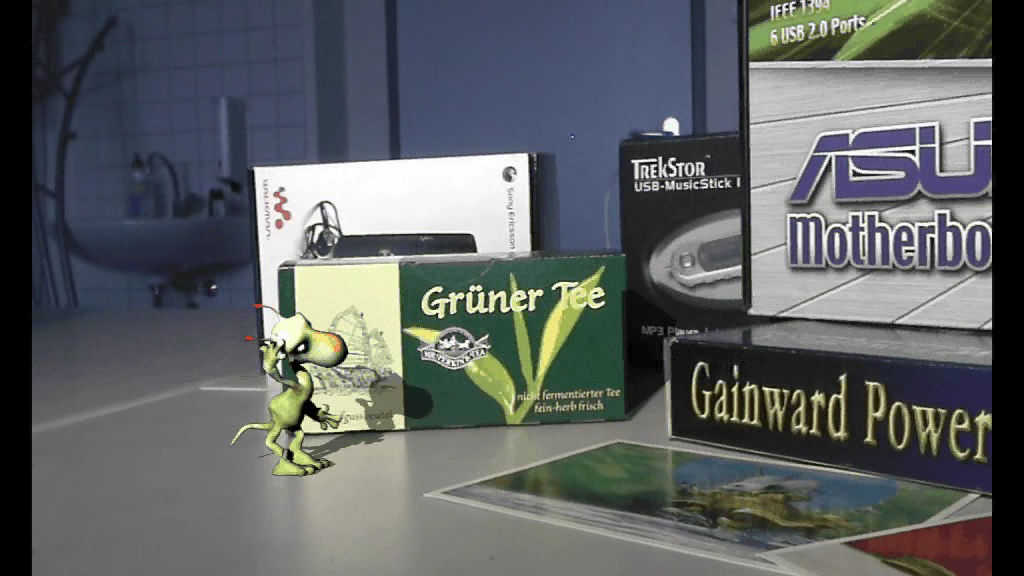Praktikum: 3D Computer Vision for Special Effects
by Prof. NavabTutors: Dr. Selim Benhimane and Andreas Hofhauser and Alexander Ladikos and Martin Horn
Typ: Praktikum (Theoretische Informatik + Master)
SWS: 6+0
Generelle Studienplaneinordnung: BS-INF WA ab 5, INF. theor. WP ab 5
ECTS: 10 Credits
Weekly Meeting: Tuesday 14:30-16:00 in MI 03.13.008
There is no preliminary discussion (Vorbesprechung) but
The course will be conducted in English.
This lab course has been inspired by a similar one designed and developed by Prof. Irfan Essa at Georgia Tech.
* Read carefully this file: Announcement.pdf
Announcements
Registration
Registration is closed.About the Course:
The lab course is designed to teach basic 3D computer vision algorithms with hands on practical examples from robot vision, augmented reality, and special effects for movies. The first weeks will be exercises which provide the basic skills in 3D Computer vision, like main algorithms in mono and stereo vision. The second part will be about computer graphics, particularly geometric modelling, animation and advanced special effects (e.g. adding fire or explosions ). The third part is about general editing of video streams required for producing professional looking movies. The final assignment is a self-contained project, like a video augmentation of short clips, rendering virtual persons into a scene or the famous "Matrix" effect from the cinema.This class is inspired by a similar one offered by Prof. Irfan Essa at Georgia Tech. College of Computing, who provided us with information and support for establishing this new and exciting tradition at TUM. See these two samples to obtain an impression from the results last years praktikum (save and watch):
 |  |
Schedule
Final Movies
| Team | Names | Final Videos | Making of |
|---|---|---|---|
| 1 | Stephen Lauschke |  |  |
| 2 | Stefan Holzer |  |  |
| 3 | Asli Okur, Alexander Sporn |  |  |
| 4 | Andreas Spurny |  |  |
| 5 | Andreas Weis, Philipp Kemmeter |  |  |
| 6 | Patrik Wucherer |  |  |
| 7 | Florian Krüger, Ralf Stauder |  |  |
Literature
- Multiple View Geometry in Computer Vision; by Richard Hartley,
Andrew Zisserman
- Three-Dimensional Computer Vision; by Olivier Faugeras
- Computer Vision: A Modern Approach; by David A. Forsyth & Jean Ponce
- Introductory Techniques for 3-D Computer Vision; by Emanuele Trucco & Alessandro Verri
- The Geometry of Multiple Images: The Laws That Govern the Formation of Multiple Images of a Scene and Some of Their Applications; by Olivier Faugeras, Quang-Tuan Luong, Theodore H. Papadopoullos; MIT Press; 2001
| TeachingForm | |
|---|---|
| Title: | 3D Computer Vision for Special Effects |
| Professor: | Prof. Navab |
| Tutors: | Dr. Selim Benhimane and Andreas Hofhauser and Alexander Ladikos and Martin Horn |
| Type: | Praktikum |
| Information: | 6 SWS, 10ECTS |
| Term: | 2007SoSe |
| Abstract: | The lab course is designed to teach the mathematical background of 3D computer vision with hands on practical examples form robot vision, augmented reality, and special effects for movies. The first weeks will be exercises which provide the basic skills in 3D Computer vision, like main algorithms in mono and stereo vision. The second part will be about computer graphics, particularly geometric modelling, animation and advanced special effects (e.g. adding fire or explosions ). The third part is about general editing of video streams required for producing professional looking movies. The final assignment is a self-contained project, like a video augmentation of short clips, rendering virtual persons into a scene or the famous "Matrix" effect from the cinema. It is complementary to the lecture 3D computer vision I in the winter terms which are of great benefit, but not compulsory. Visiting the lecture 3D computer vision II in the summer term is also recommended. |
